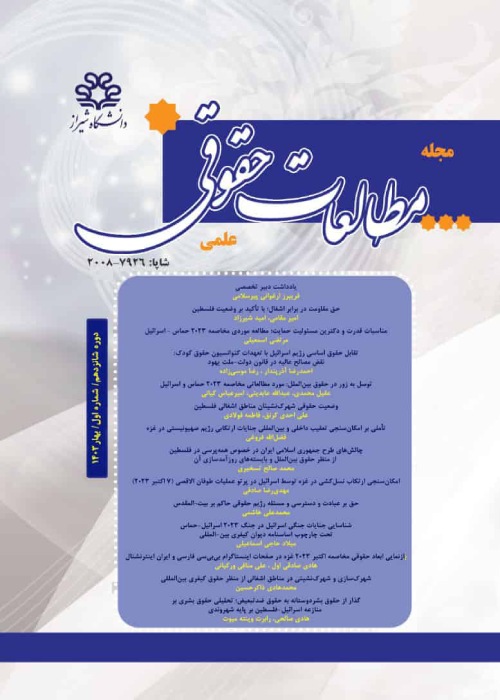The Legal Status of Settlers in Occupied Palestinian Territories
Since the establishment of Israel by the United Nations in 1948, Israel has sought to annex Palestinian lands through various crimes and acts of violence. Subsequently, it established settlements on this land, relocating populations from different parts of the world, often accompanied by the expulsion of indigenous Palestinians. Paragraph 4 of Article 49 of the Fourth Geneva Convention explicitly prohibits the deportation of protected persons from occupied territories. However, decisions by the Israeli Supreme Court have not consistently addressed deportations carried out by military authorities under the guise of security concerns.
The objective of this article is to examine the legal status of settlers residing in the occupied Palestinian territories. Settlers, at times, engage in military activities or volunteer as human shields to assist the occupying regime, blurring the line between civilian and military roles. While occupation law aims to protect both civilians and occupying forces, ambiguity surrounds the status of civilians in occupied territories.
This article delves into the adherence to the principle of distinguishing between military and civilian entities during wartime, as outlined in international humanitarian law. Specifically, it analyzes the role of Israeli settlers in occupied areas resulting from Israel's settlement policies, exploring whether their presence supports the maintenance and stabilization of the occupation within the framework of humanitarian law. It also raises questions regarding the settlers' classification as human shields, their settlements as forms of military assistance, and whether they can be targeted as combatants.
Occupation law primarily aims to safeguard the civilian population in occupied areas and protect the rights of the occupied state, given the illegality of the occupation. Thus, the restrictive nature of these rules and the need for a narrow interpretation must be considered when interpreting the law governing occupation. In the absence of explicit legal provisions, the occupying government is prohibited from taking actions that violate humanitarian law principles.
While civilians are entitled to protection under international humanitarian law, this protection is revoked if they directly participate in hostilities or aid occupiers, making them legitimate military targets. This principle applies to settlers in occupied areas as well.
Furthermore, the transfer of civilian populations to occupied areas is strictly prohibited, and settlements near borders raise concerns of settlers being used as human shields to protect military installations. Settlers involved in conflicts may be classified as combatants and legitimate targets, especially if they act as human shields.
This article, using an analytical-descriptive approach, aims to demonstrate that residents of occupied territories can be considered combatants based on their engagement in armed violence and military activities. Through the implementation of multiple military laws, the occupying regime has effectively controlled Palestinian territory and allocated it to military settlers. The settlers' use of violence against Palestinians has significantly furthered the occupying regime's objectives. Settlers who relocate through Israeli population transfer policies and do not engage in military activities effectively become human shields for the Israeli regime's actions, potentially altering their legal status to that of combatants.
- حق عضویت دریافتی صرف حمایت از نشریات عضو و نگهداری، تکمیل و توسعه مگیران میشود.
- پرداخت حق اشتراک و دانلود مقالات اجازه بازنشر آن در سایر رسانههای چاپی و دیجیتال را به کاربر نمیدهد.


